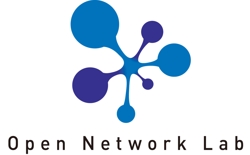 Can you name a web service you use that originates in places like Japan, China or Singapore? Chances are you can’t, and there is a good reason: there are hardly any Asian Internet startups that made a splash outside their home territories – even though Asia by far boasts the largest chunk of the worldwide Internet user base (42.4% or 764 million people). None of the seven domestic companies in Alexa’s top 10 for China, for example, are really active outside China.
Can you name a web service you use that originates in places like Japan, China or Singapore? Chances are you can’t, and there is a good reason: there are hardly any Asian Internet startups that made a splash outside their home territories – even though Asia by far boasts the largest chunk of the worldwide Internet user base (42.4% or 764 million people). None of the seven domestic companies in Alexa’s top 10 for China, for example, are really active outside China.
But movement in Asia to produce the world’s next Twitter or Facebook has been picking up steam lately, with Silicon Valley, to some extent, serving as a role model. For one, some of the most prominent initiatives in recent months are largely based on the Y Combinator model of funding multiple early-stage startups in return for ownership. And some American entrepreneurs and investors are helping with brain power and dollars, too. (Y Combinator itself isn’t involved in any of these activities in Asia.)
Late last year, for example, Japan’s international model investor Joi Ito launched Neoteny Labs in Singapore, a combination of a seed-stage venture fund and an incubator initially focused on the city-state. Yesterday, three major (listed) Japanese web companies announced Open Network Lab [JP], a very similar concept with a focus on startups based out of Japan, the world’s third largest Internet nation.
Open Network Lab: Japan’s first attempt to mass-produce global startups
As Japan’s first attempt in this space and a potential blueprint for other Asian countries, Open Network Lab (ONL) deserves a closer look. It’s jointly run by major incubation company Digital Garage (where Ito is Director of the Board), Kakaku.com (whose eponymous price engine is Japan’s biggest) and e-commerce firm Netprice. The idea is to choose those entrepreneurs from a pool of applicants the ONL partners think are capable of producing a prototype of a web service within 3 months. The main bullet point is that the product (a prototype or alpha version is enough) must be “globally competitive”, mainly targeting markets outside Japan.
Some details are different from the Y Combinator approach: Each ONL team can have a maximum of three members, and (after passing screenings) receives a maximum of about $10,000 in funding. In return for the money, mentorship, free usage of office space and other perks, the ONL founders get the right to receive a combined 5% ownership stake (they’re free to decline). In the US, Y Combinator invests $11,000 + $3000 per founder in each startup and gets back 6 or 7% in stock options.
Another difference to the American model: If the startup chooses a designated mentor, it will have to give away another 2% of stock options. ONL’s mentor line-up, assembled via the Neoteny Labs connection (both labs are partnering), is pretty impressive though, including big names such as Reid Hoffman, Napster founder Shawn Fanning, or Tim O’Reilly.
Successful ONL teams then get the chance to pitch their product to angels and VCs from Japan, Singapore and the US, probably after September this year (when the first batch of startups will graduate from the program). In other words, if the program pans out as promised, the Japanese entrepreneurs involved are rewarded with a once in a lifetime opportunity.
Whether the Open Network Lab (or Neoteny Labs, for that matter) will actually succeed in producing globally competitive startups, however, depends on how much energy, time and money the founders themselves, the mentors and VCs are ready to invest. Unlike Y Combinator and similar incubators in America, neither ONL nor Neoteny Labs are backed by people who run the firm full-time, meaning there’s the danger of those labs turning into some kind of side project at some point in the future (Ito, for instance, holds positions in 11 different companies, according to CrunchBase). In addition, ONL is run by partners from three different companies, covers two continents, and involves mentors and investors across three regions of the world (the situation is similar for Neoteny Labs).
But from an Asian perspective, both incubators do carry the potential to make a significant impact and inject life into the startup scenes in Japan and Singapore, respectively. And one can currently observe even more efforts in Asia to build up a Chinese Twitter or Japanese Facebook, particularly on the venture capital front. These are all baby steps, but it seems Asia is finally getting ready to create an ecosystem of global startups that can keep up with what’s coming out of America.